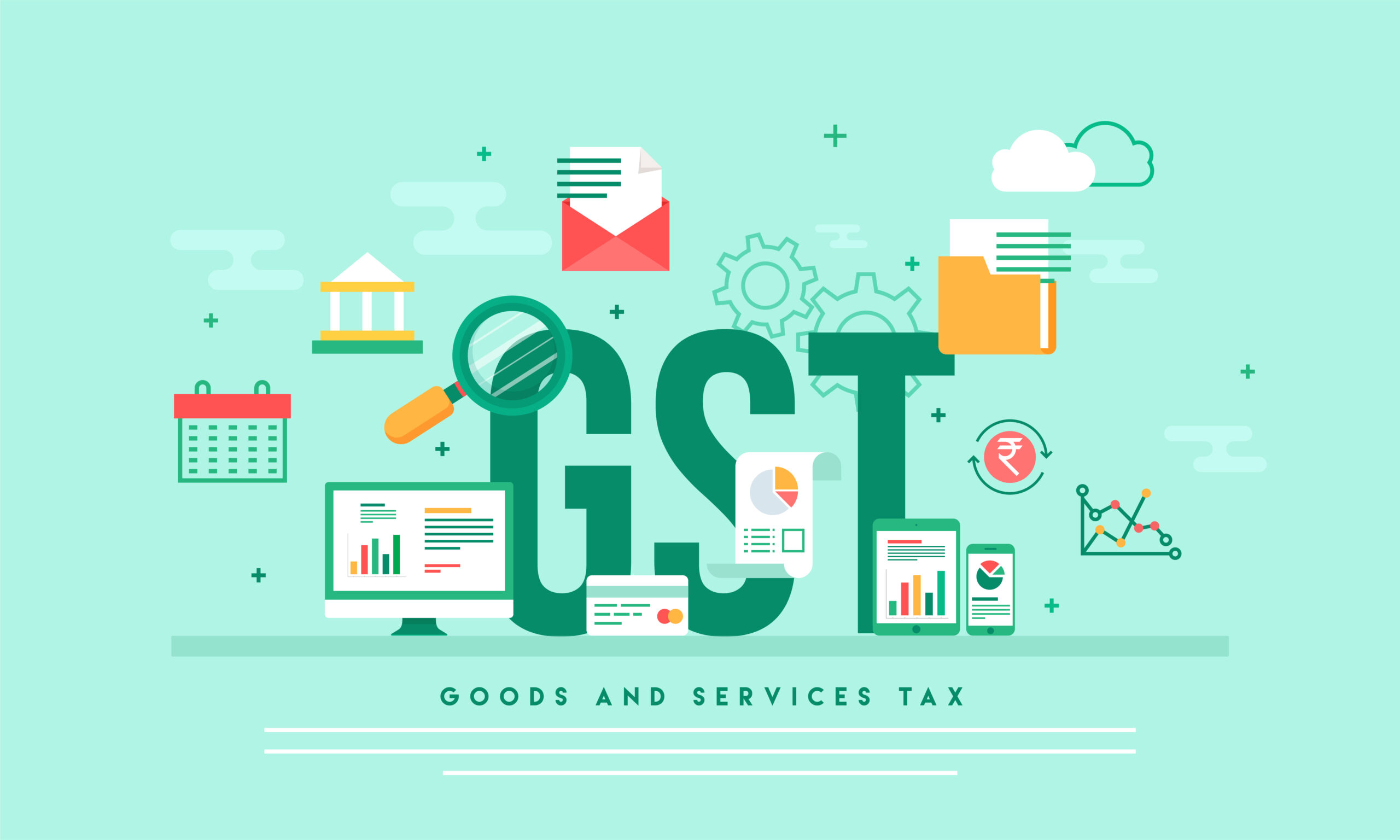Impact Of GST On Shipping And Delivery Charges
- 1 Impact of GST on the transportation industry
- 1.1 Unified Tax Structure:
- 1.2 Reduction in Logistic Costs:
- 1.3 Improved Supply Chain Efficiency:
- 1.4 Boost to Organized Players:
- 1.5 Initial Implementation Challenges:
- 1.6 Impact on Small Transporters:
- 1.7 Complex GST Structure:
- 1.8 Digitization Requirements:
- 2 Should GST be levied on delivery charges?
- 3 Implementation of GST on shipping and delivery charges
- 3.1 Clarity on GST Applicability:
- 3.2 GST on Transportation Services:
- 3.3 Impact on Logistics Companies:
- 3.4 Transparency and Compliance:
- 3.5 Impact on Consumers:
- 3.6 Challenges for Small Businesses:
- 3.7 Evolution of the Industry:
- 4 How GST will lead to a more organized transport sector
The application of the goods and services tax (GST) has made the entire process of taxation quite simple, with less involvement of bureaucracy. At a basic level, GST has positively impacted all leading industries, and the Delhi Transport Services and Logistics industry has benefited the most. The introduction of GST has affected its shipping and delivery operations and ushered in necessary reforms in the logistics and Online Delhi transport sector which is unorganized.
With GST, the entire Delhi transport and logistics infrastructure in India will change and become more competitive and optimal. According to Online Transport company executives, the Implementation of GST has helped speed up the movement of trucks online. The benefits of GST in the transport industry are indisputable.
Impact of GST on the transportation industry
Positive Impacts:
Unified Tax Structure:
GST replaced a complex web of indirect taxes with a single, unified tax system. This has streamlined the taxation process, reducing the paperwork and administrative burden on businesses in the transportation sector. With the elimination of entry taxes and other state-specific levies, the movement of goods across state borders has become more efficient.
Reduction in Logistic Costs:
The removal of interstate checkpoints and the implementation of a uniform tax structure have led to a reduction in logistic costs. With seamless movement of goods, transportation companies can optimize their routes, reduce transit times, and enhance overall efficiency. This has a direct positive impact on the cost-effectiveness of transportation services.
Improved Supply Chain Efficiency:
GST has facilitated better integration of supply chains by simplifying the tax structure for businesses involved in the transportation of goods. With the elimination of entry taxes, businesses can now plan and execute their supply chain activities more efficiently, leading to improved overall productivity.
Boost to Organized Players:
The implementation of GST has favored organized players in the transportation industry. Smaller, unorganized players who may have operated in a cash-centric economy have faced challenges in adapting to the formalized and digitized GST system. This has led to a more level playing field for larger, organized players.
Negative Impacts:
Initial Implementation Challenges:
The transition to the GST regime posed initial challenges for businesses in the transportation sector. Adapting to new compliance requirements, understanding revised tax structures, and adopting digital processes required time and resources. Some businesses faced temporary disruptions during this transition period.
Impact on Small Transporters:
Small transporters, particularly those operating regionally, faced challenges in adapting to the new GST framework. Compliance requirements and the need for digital documentation added to the operational complexities for these entities. Some smaller players struggled to bear the initial compliance costs.
Complex GST Structure:
While GST simplified the taxation structure, its complexity remained a concern for some businesses. The categorization of goods and services under different tax slabs, along with frequent changes in rates, necessitated ongoing efforts for businesses to stay compliant. This complexity can create challenges for businesses in the transportation sector.
Digitization Requirements:
The shift towards a digitized tax system required transportation companies to invest in technology infrastructure and adapt their processes. This posed a challenge for smaller players with limited resources, potentially affecting their competitiveness in the market.
Should GST be levied on delivery charges?
Arguments in Favor of GST on Delivery Charges:
Uniform Taxation: Proponents argue that applying GST to delivery charges aligns with the principle of a uniform tax structure. Including delivery charges in the taxable base ensures consistency and prevents potential loopholes that businesses might exploit to reduce their tax liability.
Boost to Revenue Collection: Levying GST on delivery charges could contribute to increased government revenue. As e-commerce and home delivery services continue to grow, taxing delivery charges becomes a potential source of income for the government, which can be utilized for public welfare and developmental projects.
Level Playing Field: Advocates for taxing delivery charges argue that it ensures a level playing field between traditional brick-and-mortar businesses and e-commerce platforms. This prevents unfair advantages for businesses that may not charge separately for delivery services, thereby promoting fair competition.
Arguments Against GST on Delivery Charges:
Burden on Consumers: Critics argue that taxing delivery charges places an additional burden on consumers. Many consumers appreciate the transparency of separate delivery charges, allowing them to make informed decisions. Imposing GST on these charges might lead to increased prices, affecting consumers’ purchasing power.
Operational Complexity: Businesses, especially smaller ones, may find it challenging to incorporate GST on delivery charges into their operational framework. The added complexity of managing tax compliance for these charges could be a deterrent for businesses, potentially hindering growth and innovation.
Impact on E-commerce Growth: The e-commerce sector, a significant driver of the digital economy, might be adversely affected by GST on delivery charges. Some argue that this could stifle the growth of online businesses, particularly smaller players who may not have the resources to navigate complex tax structures.
Administrative Challenges: Implementing and enforcing GST on delivery charges pose administrative challenges for tax authorities. The need for robust systems to track and verify these charges could strain existing infrastructure and potentially lead to compliance issues.
Implementation of GST on shipping and delivery charges
Clarity on GST Applicability:
One of the primary challenges in the early days of GST implementation was the lack of clarity on the applicability of GST on shipping and delivery charges. The GST Council had to deliberate and issue clear guidelines to address this ambiguity, ensuring uniformity in compliance across the industry.
GST on Transportation Services:
The core of the matter lies in whether shipping and delivery charges are considered part of the taxable value for transportation services under GST. As of now, GST is generally applicable to transportation services, including those related to the delivery of goods.
Impact on Logistics Companies:
For logistics and courier companies, the implementation of GST on shipping and delivery charges has necessitated adjustments to their billing and invoicing systems. It requires them to clearly delineate the charges for transportation services and apply the appropriate GST rates, ensuring compliance with the tax regulations.
Transparency and Compliance:
The introduction of GST on shipping and delivery charges has contributed to greater transparency in financial transactions. Businesses are now required to clearly state these charges in their invoices, allowing for a more comprehensive understanding of the costs involved in logistics operations. However, this has also added a layer of complexity to compliance, requiring companies to stay abreast of changes in tax rates and regulations.
Impact on Consumers:
From a consumer perspective, the application of GST on shipping and delivery charges has led to increased costs for goods and services. Consumers are now more likely to see a breakdown of charges, including the GST component, when making online purchases or availing delivery services. This transparency, while beneficial in terms of understanding costs, also means that consumers bear the burden of additional taxes.
Challenges for Small Businesses:
Small businesses, particularly those engaged in e-commerce, have faced challenges in adapting to the new tax structure. The need for compliance with GST on shipping and delivery charges adds a layer of complexity that may be daunting for smaller players. This has prompted calls for simplified processes and support mechanisms to help them navigate the regulatory landscape.
Evolution of the Industry:
Over time, the implementation of GST on shipping and delivery charges has contributed to the evolution of the logistics industry. Businesses are exploring innovative ways to optimize their supply chains and delivery processes to mitigate the impact of increased taxation. This has led to advancements in technology, route optimization, and overall operational efficiency.
How GST will lead to a more organized transport sector
Removal of Checkpoints and Entry Taxes:
One of the key benefits of GST for the transport sector is the elimination of interstate checkpoints and entry taxes. Before GST, trucks and vehicles transporting goods across state borders were subject to multiple checkposts, each imposing its own set of taxes and levies. This not only led to delays in transportation but also increased compliance costs. With the removal of these barriers, the transport of goods has become more seamless, allowing for faster movement and reducing transit times.
Streamlined Compliance:
GST has replaced a plethora of indirect taxes with a single, comprehensive tax regime. This has significantly simplified the compliance process for transporters. Previously, businesses had to grapple with multiple tax filings and varied regulations across different states. The uniformity brought about by GST has made compliance more straightforward, reducing the administrative burden on transport companies.
Input Tax Credit (ITC) Mechanism:
The introduction of the Input Tax Credit mechanism under GST has been a game-changer for the transport sector. Under the GST framework, transport companies can claim credit for the taxes paid on inputs, such as fuel, maintenance, and vehicle purchases. This encourages transparency and efficiency in operations, as businesses can offset their tax liabilities against the taxes already paid on inputs.
Shift towards Digital Processes:
GST has catalyzed a shift towards digitalization within the transport sector. The requirement for digital invoicing, e-way bills, and online tax filing has prompted transport companies to adopt digital technologies. This move towards a more digitized and transparent system not only enhances operational efficiency but also paves the way for a more organized and accountable transport ecosystem.
Level Playing Field for Organized Players:
The implementation of GST has created a more level playing field for organized players in the transport sector. Smaller, unorganized players who may have previously operated in a cash-centric economy find it challenging to adapt to the formalized GST system. This has led to increased market share for organized transport companies that can leverage their resources to comply with the new tax framework.
Reduction in Logistics Costs:
The streamlined processes, removal of entry taxes, and the ability to claim Input Tax Credit have collectively contributed to a reduction in logistics costs. With more efficient routes, reduced compliance-related delays, and cost-effective utilization of resources, transport companies can offer competitive pricing while maintaining profitability.
Improved Supply Chain Integration:
GST has facilitated better integration of supply chains. With standardized tax procedures and reduced compliance complexities, businesses can plan and execute their supply chain activities more effectively. This has led to improved coordination between manufacturers, distributors, and retailers, resulting in an overall enhancement of the supply chain.




















